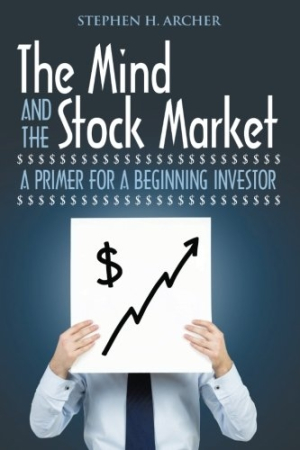The Mind and the Stock Market
A Primer for a Beginning Investor
Beginning investors stand to glean a great deal from these useful, clear, and practical lessons.
A concise primer written in plain language, The Mind and the Stock Market will improve the financial and emotional literacy of new investors.
This book confidently explains how human behavior significantly influences all areas of investment and reminds rookie stock market watchers that the same fallibility that applies to all of us applies to the markets as well. Despite the occasional foray into sometimes too loosely related topics, this volume will be valued by newbies to money management.
The Mind and the Stock Market defines and explains key concepts in investing, including investment options and financial management principles. Logically and straightforwardly structured in six distinct sections, the book is clearly worded and prioritizes comprehension of the foundational topics it addresses.
It is a translation, of sorts, of complex concepts often assumed to be the domain of experts and not intended for laypeople to fully grasp. Real-world applicability of each topic is emphasized repeatedly, enhancing the book’s practical usefulness.
While it may seem overly simplistic to an intermediate or higher-level investor, the book is aimed at beginners and strikes a precise balance between educating and not patronizing. Simple anecdotes are effectively employed throughout, significantly enhancing the understanding of complex ideas.
A particularly strong example of this is found in Chapter 10, where the saying “don’t put all your eggs in one basket” is used to explore the subject of diversification, or investing in a number of areas at once.
Brief discussions on the links between human emotion and financial decision-making support the book’s premise that “too many investment decisions involve not just profits, prices, and dividends but also the emotions of the mind—fear, regret, and ego.” Throughout, the book also provides seemingly reliable recommendations for quality, unbiased sources for further reading on a number of topics, adding further value.
The only diversion from the book’s central theme is when it veers into social commentary in sections such as “Greed” and “Diversity.” While the relationship to the main topic is loosely established, this can feel more like editorial content in search of an appropriate platform.
Writing is less strong in such sections and slants in a clear political direction that is somewhat at odds with the rest of the book’s objective tone. The huge topics broached in these sections, such as income inequality, are only cursorily explored.
The Mind and the Stock Market is useful, clear, and practical, and beginning investors will glean a great deal from its lessons.
Reviewed by
Sarah Stewart
Disclosure: This article is not an endorsement, but a review. The publisher of this book provided free copies of the book and paid a small fee to have their book reviewed by a professional reviewer. Foreword Reviews and Clarion Reviews make no guarantee that the publisher will receive a positive review. Foreword Magazine, Inc. is disclosing this in accordance with the Federal Trade Commission’s 16 CFR, Part 255.

